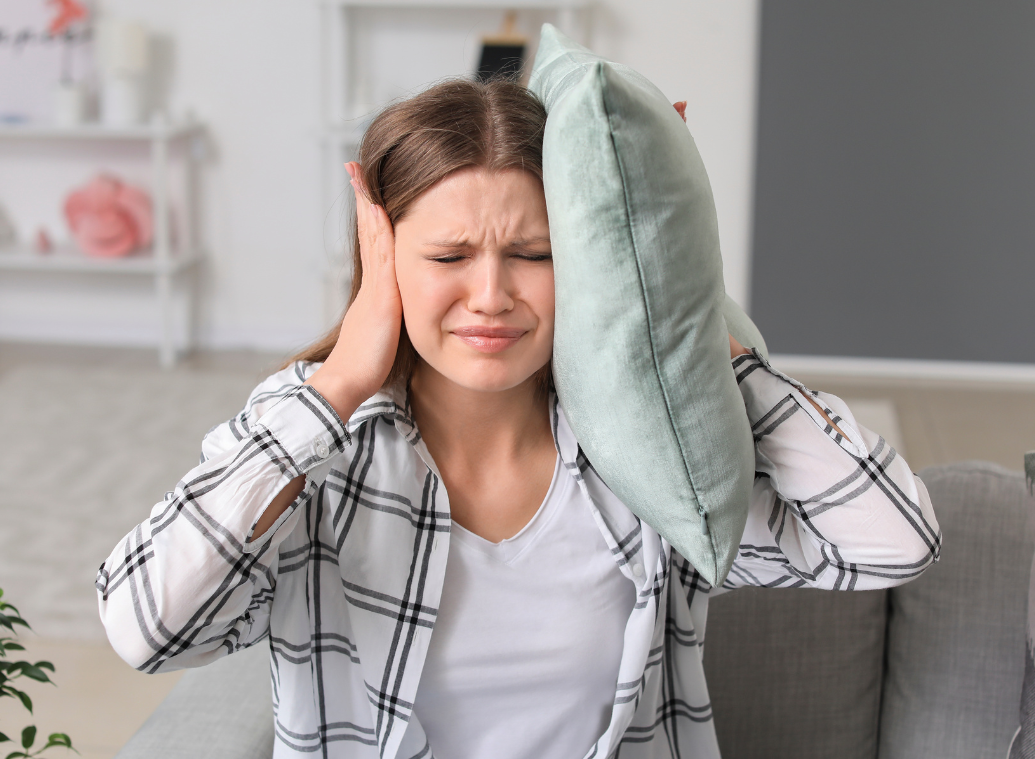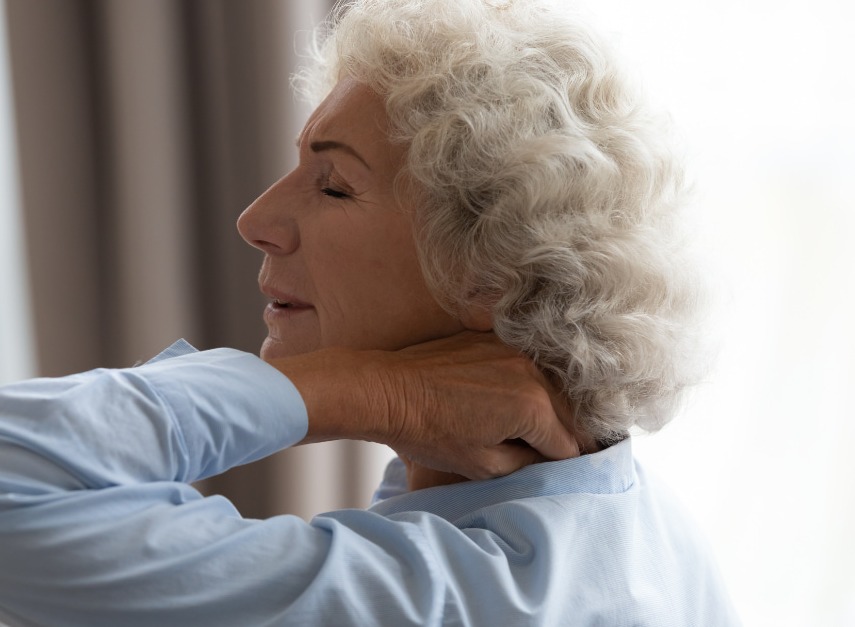- Home
- Forums
- Fibromyalgia Forum
- Living with fibromyalgia
- Has your fibromyalgia evolved as you've gotten older?
Patients Fibromyalgia
Has your fibromyalgia evolved as you've gotten older?
- 134 views
- 0 support
- 7 comments
All comments

Unregistered member
I was diagnosed with Fibromyalgia 5 years ago. I had been experiencing aches and pains, had been on antidepressants since 2011. I had been diagnosed with COPD earlier. Then I lost my husband, finding him dead in bed. So sudden, so unexpected. I suffered worse aches and pains, putting it down to effect of grief, before going to the doctor again. He diagnosed Fibromyalgia, which is something I had never heard from. Found it difficult adjusting.
One minute I was married, looking after a home, working a Full-time role in Customer Services, working as a qualified Youth Worker 2 evenings per week, and also working as a Deputy Registrar at least one day per month, more often in Summer. From all this working an average of 45 hours per week, suddenly I found I couldn't keep it up. I decided to take early retirement 9 months after my husband died. It was too much for me either the pain, or the effects of the painkillers making me feel constantly tired. Stress from employers got too much for me so I took early retirement. Lost some of my pension but just didn't have the energy to fight for ill-health retirement.
Hoping it might improve or go altogether was disappointed. Arthritis, COPD, depression, anxiety, IBS, sleeping problems, and bladder weakness added to my depression. In 2016 I had a hip replacement as pain from Arthritis was intensifying my Fibromyalgia.
I try to stay positive but find it hard. Trying to study, trying to give up smoking. Lost my mom in November 2016 which happened unexpected, and bought back all the issues I had when I lost my husband. Been very low this last year.
Do voluntary work to get me out of the house. Just feel rock bottom at times, haven't even bothered to see doctor except when my COPD has been severe, and when my sensitive skin was suddenly driving me mad as I developed eczema which flared up all over my body again probably through stress.
It feels at time like a never ending circle. I have an easier day, then end up overdoing it trying to catch up with work around the house, then I overdo it and can't do much for two or three days.
![]()
Rebeccaking
![]()
Rebeccaking
Last activity on 13/07/2024 at 20:05
Joined in 2017
1 comment posted | 1 in the Fibromyalgia Forum
Rewards
-
Explorer
I was diagnosed with fibro 6 yrs ago aged 37. It has definitely gotten worse but over the years I'm used to the constant pain. I have also developed a type of inflammatory arthritis and this is more painful than fibromyalgia but just in the joints, whereas the fibromyalgia affects everything. I have put on weight, struggle to exercise because when I try exercise after about a week I have a bad flare up that's lasts a long time. I have a lot of mental health issue's already and this just adds to it. I'm a single mum and have no help so have to still do gardening, decorating etc and looking after an autistic and adhd teenager. Life is quite hard. I'm lucky that I don't have the intestinal problems that a lot of people suffer with which is a bonus though. It's amazing bow this illness can pull your life apart, people just don't understand. X
![]()
Jennifer60
![]()
Jennifer60
Last activity on 29/06/2020 at 17:13
Joined in 2014
1 comment posted | 1 in the Fibromyalgia Forum
Rewards
-
Explorer
I was diagnosed when my husband left and told me he was gay which is 16 years near 17 years it an awful thing you r so excused all the time and people look at you when u say what is wrong so u just say fine

Courtney_J
Community managerGood advisor
![]()
Courtney_J
Community manager
Last activity on 13/10/2022 at 16:47
Joined in 2020
1,279 comments posted | 32 in the Fibromyalgia Forum
11 of their responses were helpful to members
Rewards
-
Good Advisor
-
Contributor
-
Messenger
-
Committed
-
Explorer
-
Evaluator
Hello everyone,
How are you doing? Have you seen this older discussion? ![]()
At what age were you diagnosed with fibromyalgia? Have you seen it evolve or change as you've gotten older? Have you had to adapt your lifestyle through the years?
@Anniebod @Rachel0224 @Jonolco @Karenp12 @Jojostarkey @AmiraJustine @Deadlego @tiggyb @LaurieLee @QueenTak @Crissy202 @Phionna @ZoanneSmith @pinsnneedles @Bebbabe53 @mazp43 @NickyS @sunny86
Feel free to share your experiences here!
Take care,
Courtney
See the signature
Courtney_J, Community Manager, Carenity UK

Rachel0224
![]()
Rachel0224
Last activity on 13/03/2022 at 13:18
Joined in 2020
1 comment posted | 1 in the Fibromyalgia Forum
Rewards
-
Explorer
I was diagnosed at 29 I had my boy 2years ago and they kept telling me hormones etc I kept on at them and they then diagnosed me my mum has it my mums brother and my mums cousin too so I think it’s partly heriditory
![]()
Bebbabe53
Good advisor
![]()
Bebbabe53
Last activity on 19/06/2025 at 20:15
Joined in 2020
43 comments posted | 6 in the Fibromyalgia Forum
4 of their responses were helpful to members
Rewards
-
Good Advisor
-
Contributor
-
Committed
-
Explorer
I have had the symptoms (one or more at any one time!) since I was 46 but doctors kept brushing it off. I think they thought it was my imagination. It wasn't until two years ago when I was 65 that it was diagnosed as fibro. I should add that I have chronic back pain from arthritis and chronic pain from bilateral plantar fasciitis so I think they wanted to lump it under the chronic pain umbrella. A more on the ball younger female doctor poo pooed that and sent me to the fibro clinic who couldn't believe how long it had taken to diagnose me,... but they weren't surprised!
![]()
Katzie
![]()
Katzie
Last activity on 15/05/2024 at 10:42
Joined in 2024
2 comments posted | 2 in the Fibromyalgia Forum
Rewards
-
Explorer
Hi All , I was diagnosed in 2007 after two years flaring and almost losing my job at the time .. so it came on just as I hit 40 although, I will say that I had had issues and pain way before, particularly brain fog and not being able to see the night out with friends. I have always been sensitive to alcohol and gave up the risk of hangovers in my early 20's. … 20 years on and I have managed to work all the way through this with occasional flares and if I had another illness such as Covid or a cold or sickness, I did seem to struggle with recovery time.
However, in 2015, I volunteered redundancy and lost a good job due to this. This was because I was struggling with vertigo, diagnosed at the time as BPPV and then off balance for almost a year, it never really went away and I was always slightly off balance. Following that in 2016, I started working again. I have had the occasional dizzy vertigo but it did not leave me with the residual dizziness..... until now .. On the 29th March this year I was ultra dizzy, the whole world spinning, I was dx with BPPV again and 6weeks on I am still very unbalanced with other symptoms and I have lost 5 weeks from work. During the visit to ENT, i was diagnosed with Vestibula Migraines ----- related to FM? yes... something to so with the Central Nervous System...
If anyone else has this .. -please share --- I am literally trying to get my head around this and how I can get back to work ... Im particularly interested in those that have the ongoing off balance and how they cope with it .... I cant do this for another year and feel my working life is at risk ....
Give your opinion
Members are also commenting on...
Articles to discover...

03/05/2019 | Testimonial
The testimonial of Natacha Waking up with fibromyalgia and non-disabling arthritis
Subscribe
You wish to be notified of new comments
Your subscription has been taken into account








Margarita_k
Good advisor
Margarita_k
Last activity on 07/10/2020 at 11:39
Joined in 2016
1,195 comments posted | 40 in the Fibromyalgia Forum
2 of their responses were helpful to members
Rewards
Good Advisor
Contributor
Messenger
Committed
Explorer
Evaluator
If you’ve been diagnosed with fibromyalgia, you may have experienced a number of stereotypes about the condition firsthand. One persistent misconception is that fibromyalgia affects mostly middle-aged or older people — specifically, older women.
In reality, fibromyalgia affects a wide range of ages, and both sexes. While it’s more likely to be diagnosed at an older age — about 8 percent of people meet the criteria by age 80, according to the National Fibromyalgia Association — this may reflect differences in screening and reporting of symptoms, rather than simply how common the disease is.
But regardless of how likely you are to have fibromyalgia at a given age, the condition often presents different challenges at different stages in life. That’s both because of social and occupational factors — like whether you’re in school, working a full-time job, or raising a family — and because older people are more likely to have other health conditions.
Here’s some background information on what to expect from fibromyalgia at different ages, along with personal accounts of living with the condition.
Is Fibromyalgia an Age-Related Disease?
While a diagnosis of fibromyalgia becomes more common with age, not all doctors agree that this is based on how common the condition actually is.
“We’ve found that it is not an age-related disease,” says Bruce S. Gillis, MD, a research physician and fibromyalgia expert in Los Angeles, who has developed a diagnostic test for fibromyalgia. “It can afflict young children to the very elderly.”
Younger people, Dr. Gillis says, are often screened for and diagnosed with other conditions, even if their symptoms point toward fibromyalgia. For example, he says, many children diagnosed with ADHD (attention deficit hyperactivity disorder) test positive for biomarkers associated with fibromyalgia.
But while the onset of fibromyalgia may not be more common in older people, Gillis believes that symptoms may vary somewhat with age. “It’s reasonable to assume that the elderly may have more intense symptoms” of fibromyalgia, he says, since they may experience an overall loss of stamina, problems with sleep, and other causes of joint and muscle pain.
Furthermore, Gillis notes, older people “often don’t have the ability to exercise as much as they would like, so they end up being in a shut-in type of situation,” which can lead to greater fatigue as well as depression and anxiety.
Getting Diagnosed With Fibromyalgia as a Young Adult
While getting a correct diagnosis of fibromyalgia can be difficult at any age, this issue can be a particular challenge for teenagers and young adults.
“I saw about 10 doctors, trying to see if I could get diagnosed with something,” says Kiley Reitano, a 19-year-old Boston resident who was diagnosed with fibromyalgia five years ago, as a high school freshman. She blogs about living with chronic illnesses at The Spoonie.
Reitano says that her doctors seemed to view a diagnosis of fibromyalgia as something to be avoided. “They didn’t want me to feel limited with a disease that probably wouldn’t go away,” she remembers. “But I really just wanted answers at that point, and didn’t really care what they were.”
Living with fibromyalgia during high school wasn’t easy for Reitano. “While people my age were having normal experiences, I was dealing with this,” she notes. “You get anxious and depressed thinking that you’re not normal, like any high schooler would, but, like, times 10 because you have a chronic illness.”
Currently, Reitano is studying psychology as a college undergraduate, with the hope of becoming an art therapist — a nod to the role art has played in helping her cope with her condition. She’s taking classes online to minimize the risk of missing class due to her health issues.
One upside of taking classes online, Reitano says, is that she’ll graduate sooner. But she recognizes that her condition also sets her apart socially, something that she’s learned to make peace with.
“It’s definitely become my norm, and I know how to deal with it now,” she says. But at times, she says, it has been difficult “just trying to accept the fact that this is my life — especially when I was younger and first starting out with it.”
Dealing With Fibromyalgia in Mid-Career
Dealing with a diagnosis of fibromyalgia while working a busy full-time job also presents unique challenges, as Julianne Davis — a 38-year-old resident of Newbury Park, California, who works in a corporate legal department and was diagnosed with fibromyalgia a little over a year ago — has learned.
Since the onset of her symptoms and her diagnosis, Davis has found it more difficult to get refreshing sleep at night. She tries to increase her sleep quality through regular meditation. “You put the phone away, you turn off your stuff, and you get in that calm place,” she says.
Even when she’s well rested at work, Davis often has to deal with fatigue and brain fog. “I have to write everything down” to help her remember tasks, she says — and even then, “things sort of slip through the cracks sometimes.”
While regular walking can help with fatigue, “Some days, I walk for 20 minutes, and my back is in pain,” she says. Regularly scheduled chiropractic and massage appointments, several times each week, help reduce pain and discomfort.
Adjusting to these new routines hasn’t always been easy. “I think in the beginning, I was putting too much pressure on myself to be like I was two or three years ago,” says Davis. “I’ve become better at just listening to my own body, but that was a big transition for me, letting go of what I think I’m supposed to be.”
Fibromyalgia in Middle Age and Beyond
The onset of fibromyalgia symptoms started around menopause for Robin Dix, a 62-year-old New Hampshire resident who was diagnosed with fibromyalgia eight years ago. She writes a column called Through the Fog at Fibromyalgia News Today.
“Initially, my main symptom was fatigue, more than pain,” she says. But “Over the years, it’s kind of balanced out” to include both.
One factor in her fatigue level, Dix says, is the other illnesses she has developed over the years — including chronic fatigue, adrenal fatigue, underactive thyroid, irritable bowel syndrome (IBS), and gastroesophageal reflux disease (GERD).
“For me it’s gotten worse, so it feels like age has something to do with it,” says Dix. She has also experienced increased muscle weakness in her legs, which makes walking difficult.
“It’s hard to know how interconnected things are,” Dix admits, but notes that “The piece I know is fibro, and nothing else, is overall body pain. It’s not that severe for me, but it’s always there. It’s kind of like background music.”
Brain fog is also a challenge for Dix. “Initially the brain fog wasn’t as bad. It feels like it’s worse now, but part of that might just be getting older,” she says.
While most doctors say that fibromyalgia isn’t a progressive disease, says Dix, “For a lot of people, myself included, our symptoms change over the years.” This may be due, of course, to the onset of other health conditions related to age.
The result of all these symptoms, for Dix, is that sometimes it’s necessary to stay at home rather than see family and friends. “When you have to cancel plans, it’s very lonely,” she says. “You can become very isolated.”
But like her younger peers with fibromyalgia, Dix has found that the internet can provide a social outlet and support. “There are a lot of places online where people can connect, and it makes you feel so much less alone,” she says. “I think that’s so important.”
Source: everydayhealth.com